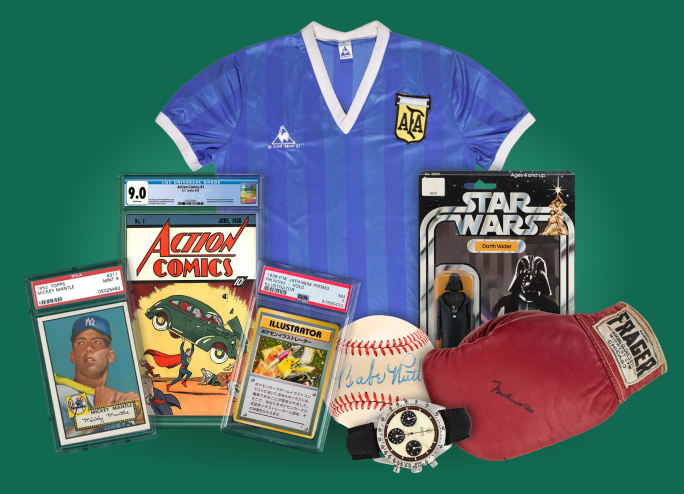
In Collectors MD
collectorsmd
1 d
When The Hobby Turned Into Something Else
Published July 31, 2025 | By Carey A, Collectors MD Advocate
Tell me if this story sounds familiar:
I’m a 45-year-old guy. I recently got back into card collecting. I remember as a kid in the ’80s and ’90s, going to my local card shop with a few dollars I earned from chores, a paper route, or mowing lawns—excited to rip some packs of baseball cards. Hoping to pull a 1987 Topps Jose Canseco with the wood border, an ’89 Upper Deck Ken Griffey Jr. rookie, or really any Michael Jordan card.
I collected for a while, but by high school I stopped—my money started going toward movies, dinners with friends, or gas for my parents’ minivan. Years later, with a steady job and some extra income, I decided to jump back into the hobby. Maybe I was chasing the nostalgia of those great childhood memories.
Sound familiar? That’s my story—and after two years of collecting again, setting up at card shows, and talking to other collectors, I’ve realized it’s a very common theme.
For many, that’s where it ends: buying a box here or there, picking up some singles for the PC. But for others, that first box becomes a slippery slope—a slope that can spiral fast, taking you to a place you never imagined you’d be. That’s also part of my story. And that’s what I want to talk about today: the dark side of collecting.
If you’ve watched my YouTube channel, you’ve probably seen me rip a lot of boxes—sometimes sealed cases, sometimes just a bunch of loose wax. I bought and opened whatever I could get my hands on. I tracked every release drop across apps, knew when the restockers hit Walmart and Target—I didn’t want to miss anything.
In my mind, it was all fine. I had disposable income. I’d just sell the big hits to fund the next one. But those big hits? They’d usually end up sleeved and boxed up—cards I planned to grade “someday”… but never did.
So when I went to buy the next case, that imaginary sale money wasn’t there. So I used credit cards. And I told myself, “It’s okay. I’ll sell the hits from this one.”
It wasn’t long before I had built up a mountain of debt—and even worse, I was keeping it a secret from the people I care about most: my wife and kids. I had justified the spending to myself. It felt good when I was ripping. But deep down, I knew something wasn’t right. I was ashamed—ashamed to admit that I had become addicted to sports cards… something most people see as a child’s hobby.
But this is real. And it’s destroying lives.
Card collecting doesn’t feel like a hobby anymore—it’s become more like gambling. Like scratch-off lottery tickets.
You hit once, and it’s a rush. So what do you do? Cash it in and go again. But eventually, the house always wins.
It’s the same with breaks and boxes. You hit something big, and use it to justify chasing the next one. That dopamine rush only lasts so long. The big hits are rare, and the losses add up. If you’re not careful—if you’re not intentional—it can spiral quickly. And the consequences can be devastating.
I’m not here to bash the hobby. It can still be fun—if done with intention and control. I’ve met amazing people through collecting. Talking cards, talking sports, building real connections. Some of my favorite memories were at shows, giving cards to kids walking around with their dads—watching their faces light up when they got a shiny card of their favorite player. That’s what the hobby should be about. Not stress. Not anxiety. Not guilt.
Not everyone struggles the way I have. Some spend more than I did and are fine. Others spend less and still spiral. We’re all an experiment of one—there’s no single path, no identical outcome.
But here are a few questions that helped me check in with myself. Be honest:
Have you ever hidden how much you’ve spent?
Have you sold personal items to fund impulse buys?
Are you checking shopping or auction apps daily—or even hourly?
Have you promised to stop… but didn’t?
Do you buy things you don’t actually want?
If you said yes to any of these, just know—you’re not alone. Maybe you have a problem, maybe you don’t. But deep down, you probably already know if you do.
For me, it took reaching a breaking point. I posted my struggles in a Facebook group and was surprised by the support. One person invited me to a Collectors MD meeting—and I joined right away. Because I knew I needed support. I knew I needed to hear from others who had been there.
That first meeting? It was a turning point.
Collectors MD is still new, but it’s growing—and if you’re struggling, I strongly encourage you to reach out. Whether it’s through social media or the website, they’ve created a safe space where people can share without judgment. Hearing others’ stories, and being able to share my own, has been a critical step in my recovery.
Don’t try to fix this alone. That’s probably part of what got you here. Be honest—with yourself and the people you’ve affected. And start right now on the path back to the person you want to be.
Thanks for reading. If my story helps even one person feel seen, understood, or less alone—then it’s worth it.
#CollectorsMD
Sometimes the smallest confession can unlock the biggest transformation.
—
Follow us on Instagram: @collectorsmd
Subscribe to our Newsletter & Support Group
Join The Conversation On Mantel
Read More Daily Reflections

